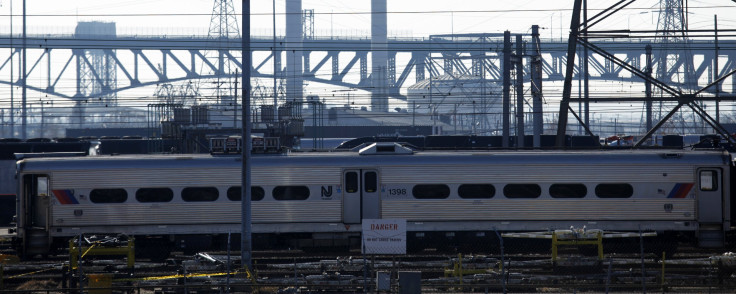Charlie Davies, Medical Marijuana User With Renal Failure, Sues NJ Transit For Suspending Him

A former employee of New Jersey Transit is suing the agency for refusing to recognize his medical marijuana status as a reason to dismiss his positive drug test.
Charlie Davis, 57, has end-stage renal failure, a disease that requires the use of dialysis to clease his blood, and leads to a number of other medical complications. Davis was prescribed medical marijuana to help ease the pain of his condition, but that doesn’t comply with NJ Transit rules.
Formerly a procurement clerk for NJ Transit, a job that involved more paperwork than lever-pulling, Davis was “bumped” from that job by a senior employee. Then he applied for a job as a block operator, who changes locomotive signals manually. This position requires a drug test and is classified as a “safety-sensitive” position.
Block operator may not be the best position for a medical marijuana user, but Davis contends that he offered to apply for a job not considered safety sensitive. The medical officer said he had to take the test regardless, creating a situation that, per NJ Transit rules, would inevitably send Davis to rehab, even if Davis elected not to pursue the block-operator position.
“NJ Transit’s actions violate both common sense and the law against discrimination designed to protect workers like Charlie,” says his lawyer, Sarah Fern Meil. "Instead of working to accommodate its disabled employee, NJ Transit treated him like a drug addict."
The suit and the circumstances leading up to it call into question the continuing legal discrepancy between federal and state marijuana laws. The legal gray area between state and federal law has been an issue in almost every state that has enacted marijuana laws contrary to federal laws since California first did in 1996.
New Jersey legalized medical marijuana in 2012 with the Compassionate Use Medical Marijuana Act, but NJ Transit derives its rules from the federal Department of Transportation (DOT), which strictly prohibits the use of any Schedule I narcotic by any safety-sensitive employees. The DOT does not recognize a “valid medical explanation for a transportation employee’s positive drug-test result.”
“It remains unacceptable for any safety‐sensitive employee subject to drug testing under the Department of Transportation’s drug-testing regulations to use marijuana.”
The DOT specifically pointed out that medical marijuana was prohibited in 2013, when it confirmed that even if a doctor recommends an employee use medical marijuana in a state that has legalized medical marijuana, its use is still prohibited and grounds for termination.
NJ.com points out that Davis may have a hard time getting a court to side with him, since precedent favors employers despite state rules. Still, many New Jerseyans side with Davis. A NJ.com poll shows 74 percent of its respondents think NJ Transit shouldn’t have suspended him, while 23 percent support Davis’s suspension.
© Copyright IBTimes 2024. All rights reserved.






















